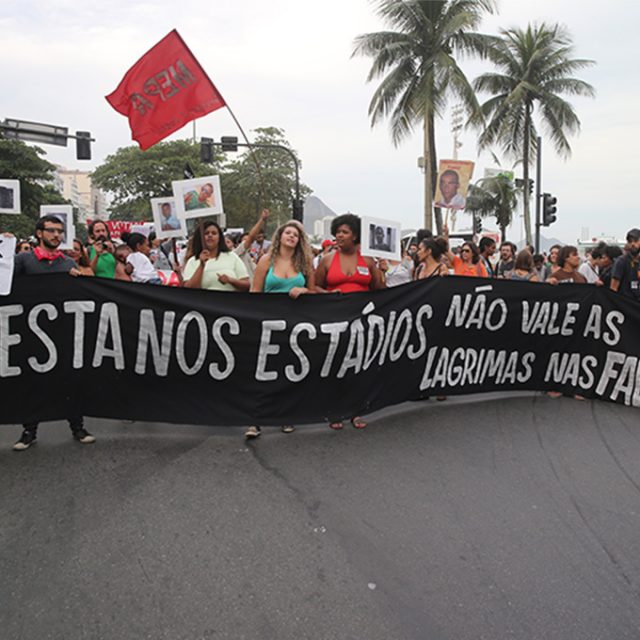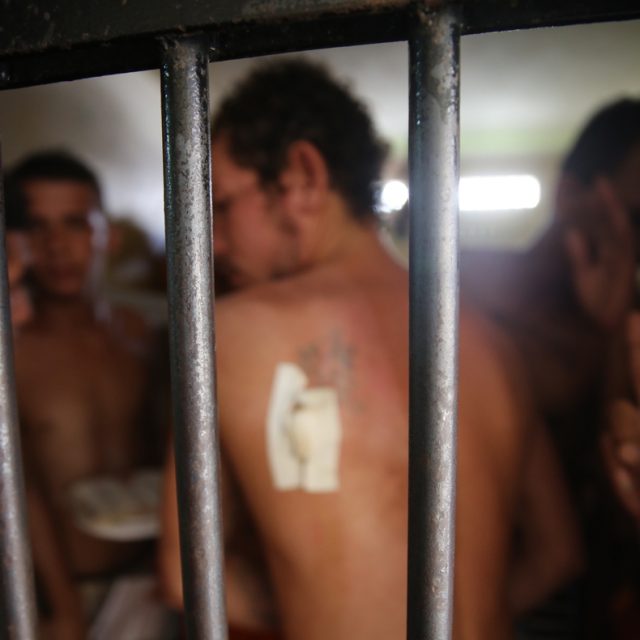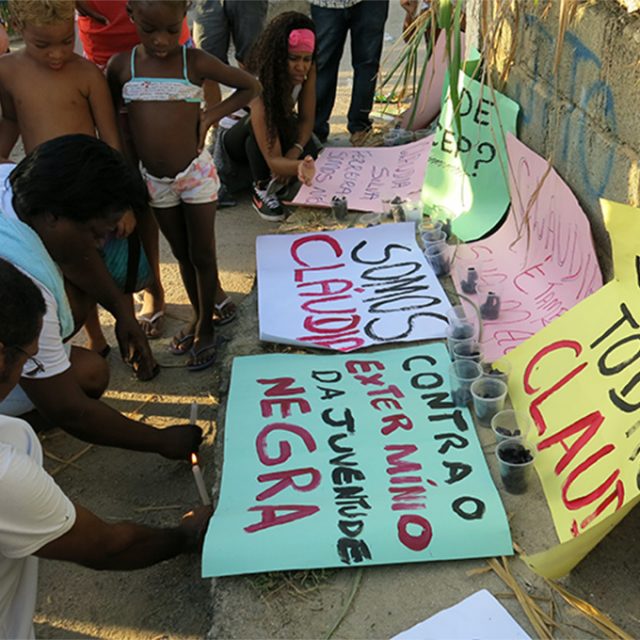Brazil leads the UN world ranking of homicides in absolute numbers and is the eighth most violent country in the world (UNODC/UN). According to the agency, 76% of deaths were caused by firearms. However, historically, the Brazilian State has opted for a public security policy that deepens violence and inequalities (mainly racial), with the excessive use of force by law enforcement agents, militarization, and over-incarceration, in addition to the discriminatory stance when it comes to guaranteeing the basic rights and services in favelas and other impoverished territories, noticeably occupied by black and/or indigenous populations.
Thus, the Institutional Violence and Public Security program focuses on developing research and analyses that help understand and combat racism as a structuring factor in the actions of both public security agencies and the criminal justice system.
In order to confront violence caused by the State (or by private security agents approved by the State) and produce an agenda of reparation and non-repetition, Justiça Global works to combat racism and police violence; prevent and eradicate torture and other violations of the human rights of persons deprived of their liberty; promote decarceration through the revision of criminal policies and also to strengthen the capacities of organizations, social movements and families of victims of State-violence and survivors of the prison system in their fight against human rights violations and in the promotion of justice and prevention of further abuse.
Understand the performance of the program
Fighting police violence

The 2023 Security Yearbook reports that 6,429 people died as a result of police violence in one year in Brazil. According to data from the Network of Public Security Observatories, 65% of these victims were black. This number reflects the public security policy in Brazil, which is based on a militarized, belligerent paradigm that is incompatible with democracy.
Made visible by the business-military dictatorship and strengthened by the rhetoric of the war on drugs, the action (both direct or by omission) of criminal policies intensifies the genocide of black populations, as seen in increasingly frequent police mega-operations in favelas, peripheral communities and regions in several cities across the country. The consequences of this model are summary executions, forced disappearances, arbitrary arrests, and the imposition of suffering and illness on women.
Based on that, Justiça Global monitors and reports cases, recommends policies to reduce police violence and strengthen external control over the activity of law-enforcement agencies, and works to strengthen movements against state violence, especially those led by mothers and families of victims.
Fight against mass incarceration and the torture

Over the last few decades, the number of persons deprived of their liberty in Brazil has increased significantly. Today, Brazil ranks third in the ranking of countries with the largest prison population in the world, with an average of 300 adult persons deprived of liberty per 100,000 inhabitants. This number is twice as high as the world average, according to the International Center for Prison Studies (University of Essex/United Kingdom).
This massive, selective incarceration of black youths — especially women — demonstrates the unbridled advancement of institutional violence that has been established since Brazil’s colonial past and, since then, has made torture a perpetual practice within a criminal justice system that turns a blind eye to all types of violations of fundamental rights of persons deprived of liberty.
Given this situation, Justiça Global monitors and reports violations in places of deprivation of liberty, and advocates in Brazil and abroad to strengthen policies for preventing and combating torture; decarceration; controlling the use of force; and guaranteeing human rights in institutions of deprivation of liberty.
Advocacy at International Human Rights Systems

Since its foundation, Justiça Global’s strategy has been to act in international human rights systems — in the Organization of American States (OAS) and the United Nations (UN) — by submitting complaints and information, acting as amicus curiae, requesting hearings, monitoring visits, and petitioning cases.